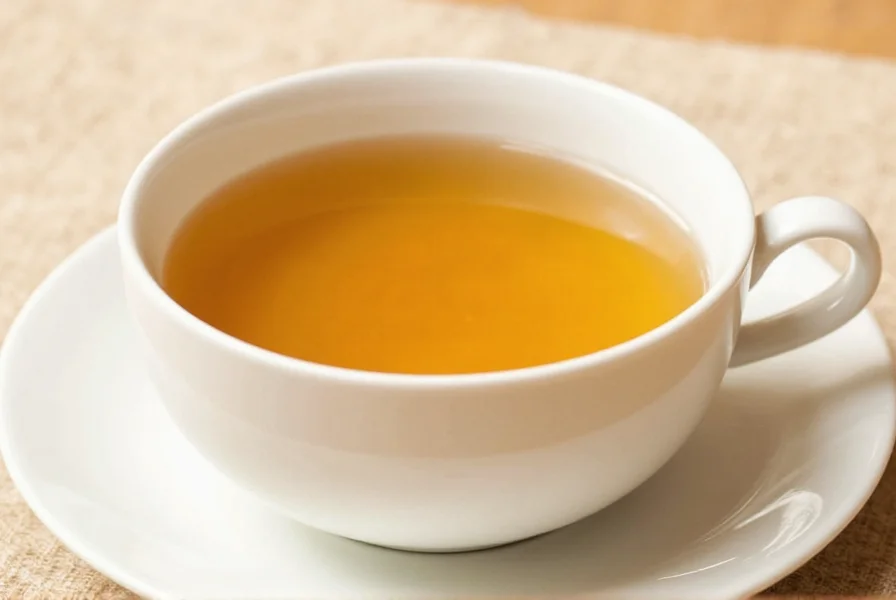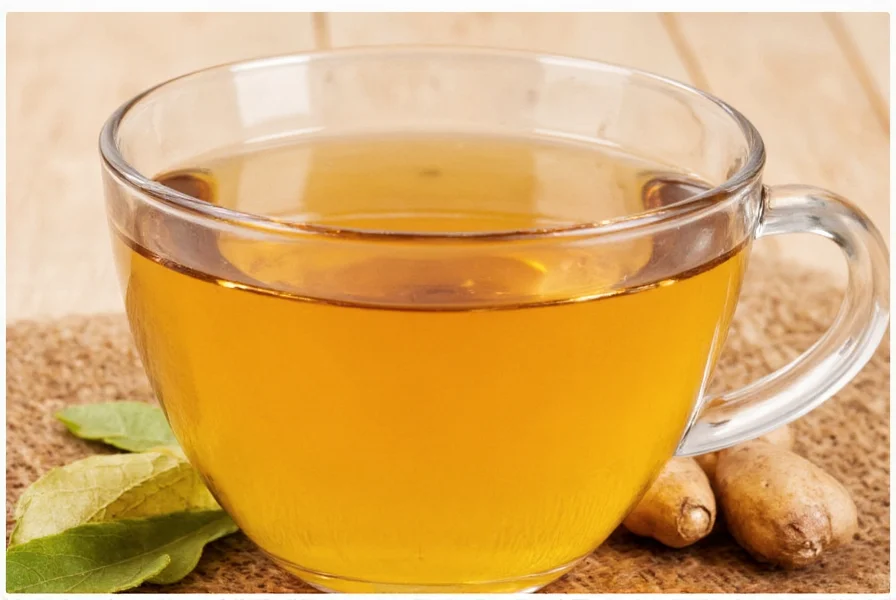Scientific research indicates that drinking ginger tea may provide several health benefits including relief from nausea, reduced inflammation, improved digestion, and antioxidant support. These effects are primarily attributed to gingerol, the active compound in ginger. While promising, most studies suggest ginger tea works best as a complementary approach rather than a standalone treatment for medical conditions.
Ginger tea has been used for centuries across various cultures for its medicinal properties. Modern research continues to validate many of these traditional uses while providing scientific insights into how this simple beverage may support overall wellness. Unlike many health trends that come and go, ginger's therapeutic potential has withstood the test of time and rigorous scientific examination.
The Science Behind Ginger's Health Properties
Ginger's primary bioactive compound, gingerol, is responsible for most of its health-promoting effects. This potent phenolic compound gives ginger its characteristic pungent flavor while delivering significant anti-inflammatory and antioxidant benefits. When brewed as tea, these compounds become water-soluble, making them readily available for absorption in the body.

Research-Supported Health Benefits of Ginger Tea
Digestive Health Improvement
One of the most well-documented benefits of ginger tea relates to digestive health. Clinical studies show that ginger can accelerate gastric emptying, which helps reduce bloating and discomfort after meals. Research published in the European Journal of Gastroenterology & Hepatology found that ginger significantly improved symptoms in patients with functional dyspepsia. For those experiencing occasional indigestion, a cup of ginger tea after meals may provide natural relief without the side effects of pharmaceutical options.
Nausea and Motion Sickness Relief
Ginger tea's effectiveness against nausea is perhaps its most scientifically validated benefit. Multiple clinical trials have demonstrated ginger's ability to reduce nausea from various causes including morning sickness during pregnancy, postoperative nausea, and chemotherapy-induced nausea. A comprehensive review in Supportive Care in Cancer concluded that ginger supplementation significantly reduced chemotherapy-related nausea. Unlike many anti-nausea medications, ginger tea typically doesn't cause drowsiness, making it a practical option for daytime use.
Anti-Inflammatory Effects for Joint Health
The anti-inflammatory properties of ginger tea may provide relief for individuals with osteoarthritis and other inflammatory conditions. A study in Arthritis & Rheumatism found that ginger extract reduced pain and stiffness in osteoarthritis patients. While ginger tea contains lower concentrations than therapeutic extracts, regular consumption may contribute to reduced inflammation markers in the body. For those seeking natural approaches to managing joint discomfort, ginger tea represents a safe complementary option to discuss with healthcare providers.
| Health Benefit | Scientific Support Level | Recommended Consumption |
|---|---|---|
| Nausea relief | High (multiple clinical trials) | 1-2 cups when symptoms occur |
| Digestive support | Moderate (several studies) | 1 cup after meals |
| Inflammation reduction | Moderate (promising research) | 2-3 cups daily for chronic issues |
| Immune system support | Preliminary (early research) | Regular consumption during cold season |
Immune System Support During Cold Season
While not a cure for colds or flu, ginger tea may provide supportive benefits during cold and flu season. Its warming properties can soothe sore throats, while its antioxidant content may help strengthen the body's natural defenses. Some research suggests ginger compounds can inhibit certain viral mechanisms, though more studies are needed specifically on ginger tea's effects on respiratory infections. The hydration provided by the tea itself also supports immune function, making it a valuable addition to wellness routines during colder months.
Natural Antioxidant Protection
Ginger tea delivers a significant dose of antioxidants that help combat oxidative stress in the body. These compounds neutralize free radicals that can damage cells and contribute to chronic diseases. Regular consumption of antioxidant-rich beverages like ginger tea may contribute to long-term health preservation. Unlike some antioxidant supplements, ginger tea provides these benefits in a natural, food-based form that the body can readily utilize.
How to Maximize Benefits When Drinking Ginger Tea
To get the most health benefits from ginger tea, proper preparation matters. Fresh ginger root generally contains higher concentrations of active compounds than powdered forms. For optimal extraction, slice or grate about one inch of fresh ginger and simmer in 2 cups of water for 10-15 minutes. Longer simmering increases potency but also intensifies the flavor. Adding a squeeze of lemon can enhance the absorption of certain compounds, while a small amount of honey can make the tea more palatable without significantly affecting its health properties.
Potential Considerations and Side Effects
While ginger tea is safe for most people, certain considerations apply. Those taking blood-thinning medications should consult their healthcare provider before consuming large amounts, as ginger may enhance these medications' effects. People with gallstone disease should also exercise caution, as ginger may increase bile production. Pregnant women can generally consume moderate amounts (up to 1 gram of ginger daily) for nausea relief, but should discuss this with their obstetric provider. As with any natural remedy, moderation is key—most research suggests benefits plateau after certain consumption levels.
Understanding Research Limitations
When evaluating studies on ginger tea's health benefits, it's important to recognize certain limitations. Many studies use concentrated ginger extracts rather than tea preparations, meaning the effects observed in research may not directly translate to drinking typical ginger tea. Additionally, most human studies have relatively small sample sizes and short durations. While the existing evidence is promising, more large-scale, long-term studies specifically on ginger tea consumption would strengthen our understanding of its health impacts. This context helps consumers make informed decisions without overstating the current scientific consensus.
Practical Integration Into Daily Wellness Routine
Incorporating ginger tea into your daily routine can be simple and enjoyable. Start with one cup in the morning to support digestion throughout the day, or enjoy it after meals to prevent discomfort. During cold season, increase to 2-3 cups daily for potential immune support. For those sensitive to strong flavors, begin with milder preparations and gradually increase ginger concentration as your palate adjusts. Remember that consistency matters more than intensity—regular moderate consumption typically yields better results than occasional heavy doses.

Conclusion
Ginger tea represents a time-tested, research-supported addition to a healthy lifestyle. Its potential benefits for digestion, nausea relief, inflammation reduction, and antioxidant protection make it a valuable beverage for many seeking natural wellness approaches. While not a miracle cure, regular consumption as part of a balanced diet and healthy lifestyle may contribute to improved well-being. As with any health-related decision, consult with healthcare professionals about how ginger tea might fit into your personal health strategy, especially if you have underlying medical conditions or take medications.
How much ginger tea should I drink daily for health benefits?
For general wellness, 1-3 cups of ginger tea daily is typically sufficient. Those seeking specific benefits like nausea relief may benefit from 1-2 cups when symptoms occur, while those addressing inflammation might consider 2-3 cups daily. Most research suggests benefits plateau after about 1-1.5 grams of ginger daily, equivalent to approximately 3 cups of standard-strength ginger tea.
Can ginger tea help with weight loss?
While ginger tea isn't a weight loss solution, it may support weight management efforts. Some studies suggest ginger can modestly increase metabolism and reduce feelings of hunger. More significantly, replacing high-calorie beverages with ginger tea reduces overall calorie intake. However, any weight loss effects are likely modest and work best as part of a comprehensive approach including diet and exercise.
When is the best time to drink ginger tea for maximum benefits?
The optimal timing depends on your goals. For digestive support, consume 20-30 minutes before or after meals. For nausea relief, drink when symptoms begin. For general wellness, many people prefer morning consumption to support digestion throughout the day. Some find evening ginger tea too stimulating, though this varies by individual. Listen to your body's response to determine your ideal timing.
Are there any medications that interact with ginger tea?
Ginger tea may interact with blood-thinning medications like warfarin, potentially increasing bleeding risk. It might also affect diabetes medications by lowering blood sugar. Those taking hypertension medications should monitor blood pressure, as ginger may enhance these effects. Always consult your healthcare provider before regularly consuming ginger tea if you take prescription medications, especially if you consume more than 1-2 cups daily.
How does fresh ginger tea compare to store-bought ginger tea products?
Fresh ginger tea typically contains higher concentrations of active compounds than many commercial products. Store-bought ginger teas vary significantly in ginger content, with some containing minimal actual ginger. When purchasing commercial products, look for those listing ginger as the first ingredient and avoid those with excessive added sugars. For maximum benefits, freshly prepared ginger tea from raw root generally provides the most potent therapeutic effects.











 浙公网安备
33010002000092号
浙公网安备
33010002000092号 浙B2-20120091-4
浙B2-20120091-4